Learning, Design and Technology Program Awarded Three Quality Matters Program Certifications
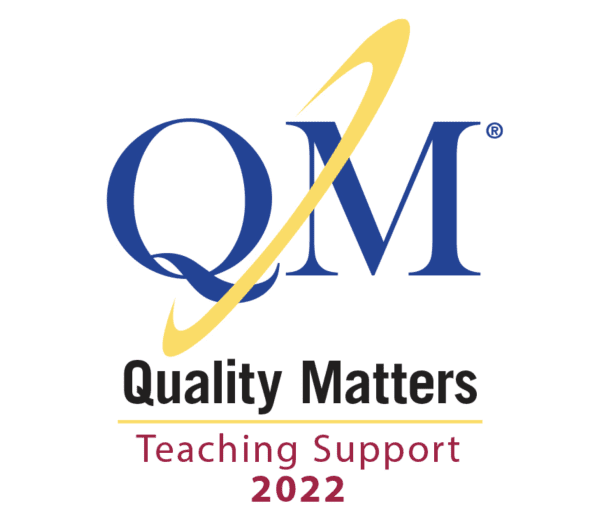
The Learning, Design and Technology (LDT) program recently received three Quality Matters (QM) program certifications.
Quality Matters is a nonprofit organization that represents the leading international standard in assessing the quality of online and blended courses. Its membership numbers more than 1,500 colleges and universities throughout the world who use the HE Rubric to improve course design. Its mission is to define and maintain quality assurance in online teaching, with the help of a worldwide network of coordinators, workshop facilitators, peer and master reviewers, conference presenters and educators.
“The process of receiving an official QM Program Certification requires a tremendous amount of effort and work to showcase the rigor and strength of the program in multiple perspectives,” said Dr. Enoch Park, who is a QM Certified Program Reviewer and adjunct faculty for the LDT program. He provided consultation on the certification process and feedback on the narratives and the data.
Department leaders Dr. Beth Oyarzun and Dr. Ayesha Sadaf wrote narratives, collected data, and at times revised the program, in order to compile and submit the necessary documents for the applications. It was, and is, a sustained and dedicated effort spanning over five years. At the time, the programs already showed promising success and faculty was confident it could earn all four QM certifications on its merits.
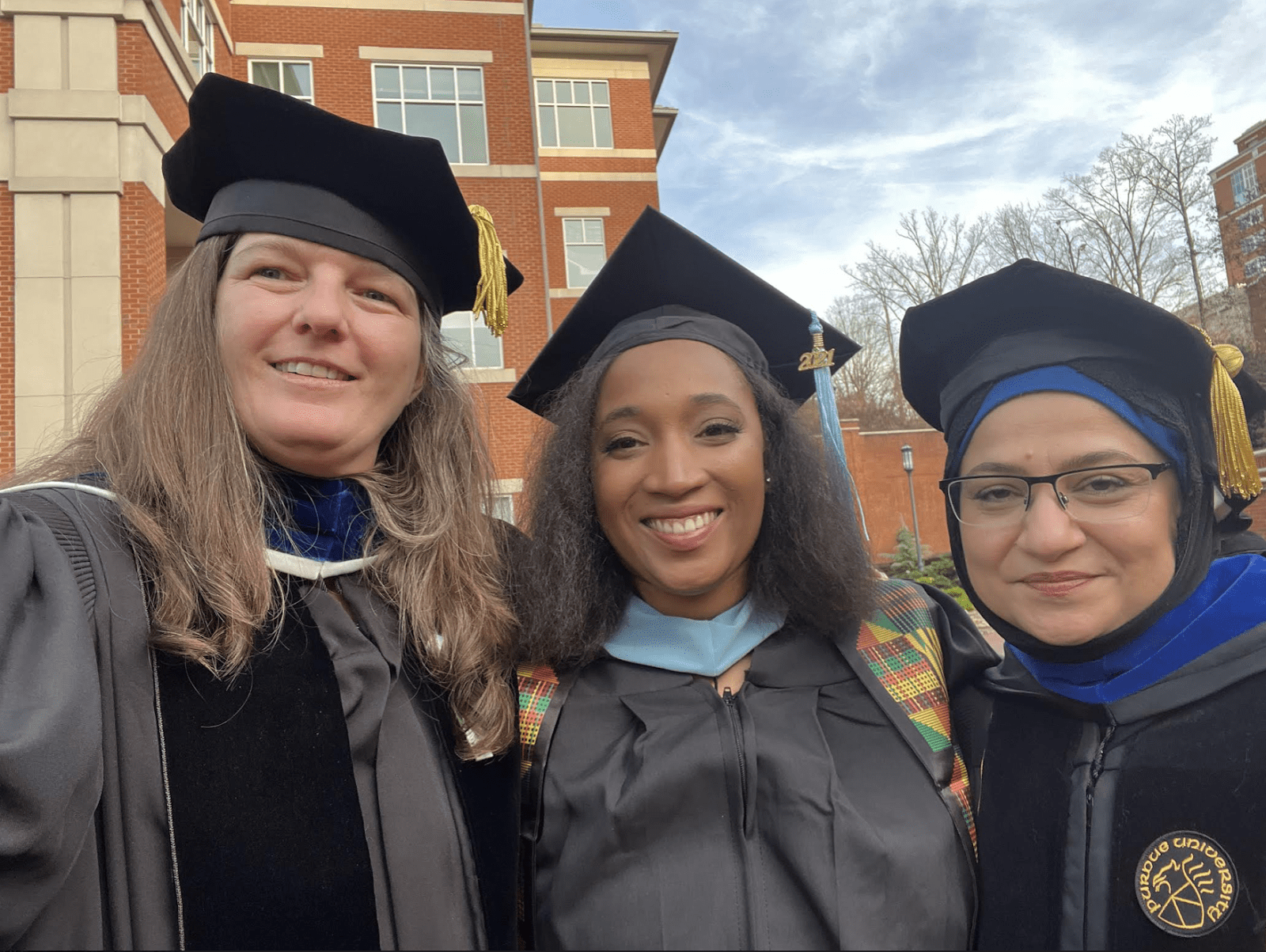
From left, Beth Oyarzun, Jessica Bethea and Ayesha Sadaf. Bethea, a recent graduate of the program, landed a job as an Instructional Designer at Central Piedmont Community College.
The three certifications the LDT program have received are Program Design in 2017, Learner Success in 2019, and Teaching Support in 2022. There are only five institutions among the total of 1,564 QM member institutions that have received 3 or more program areas formally certified by QM, making the LDT program within the top 0.3% among QM members. Like a climbing expedition in a race for the summit, Oyarzun is planning to begin the process of the fourth and final application this semester.
For Oyarzun, Quality Matters certifications are a great way for UNC Charlotte’s LDT program to communicate its commitment to quality online learning through objective, research-based assessments.
The LDT program at UNC Charlotte is a fully online master’s of education in learning, design, and technology in which students have three different concentration pathways: School Specialist, Online Teaching and Learning, and Training and Development.
Similar programs have existed for at least the past 50 years, if not longer. But they steadily attracted the attention of a wider audience with the advancements in digital technology of the past 20 years and the pandemic.
The program and its success reveals something perhaps more foundational: technology, if it is not already infused in every aspect of modern life, will continue to radically impact how people learn, communicate and consume information.
It was 2014 when Dr. Florence Martin first began to shape it into what it is today. She overhauled the program: she diversified and updated it, developed the concentrations, brought in different lecturers from different areas and embedded flexibility into the program.
“The faculty has built expertise and flexibility into the fabric of the program for over eight years and established the conditions for the LDT program to emerge in 2022 as a national leader,” said Park.
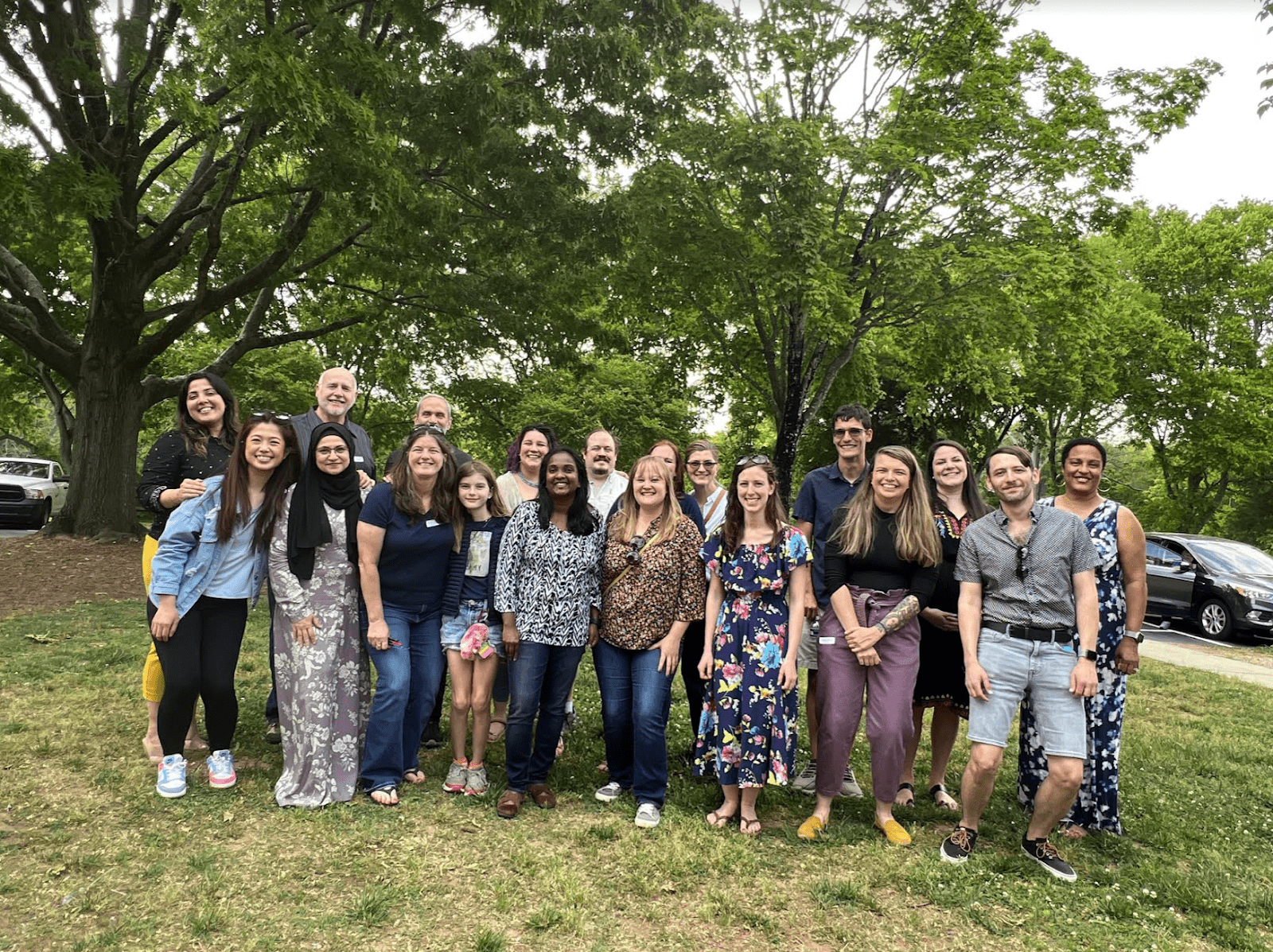
Students and faculty gather for a photo
For her part, Oyarzun, who started her role as program director in 2018, has been meticulous in making sure the program’s own content and structure is of the finest quality and efficacy.
The first certification, Program Design in 2017, showcased the strong program structure and curriculum design that ensure and sustain quality instruction across the entire program. At the time, the LDT program received advanced training in QM and was encouraged to attain official QM certifications for the program courses. The consequence is that it has shown to be one of the most versatile degrees at UNC Charlotte.
There is no traditional cohort, and students can complete it along any timeline or in any trajectory, however meandering or direct, that fits their needs. The course content is highly learner-centric and project-based, which means that their coursework is designed around and adaptable to their real-world interest in the field.
It’s part of how education reaches a wider audience too. Most students in the program are adult learners who are typically coming back after working for a period of time, or have families, and they want to get the degree to progress in the environment they’re currently working in or are looking to transition to a new environment altogether.
The second, Learner Success in 2019, revealed that the students in the program were consistently high-performing and successful in both academics and post-college careers. Oyarzun believes it is the versatility they embed in the program’s design that ensures success.
“To be able to move seamlessly into areas the student is passionate about can help them be more successful. You can find a niche area under the LDT umbrella that you are passionate about and enjoy doing, and that can make all the difference in terms of motivation and overall success,” she said.
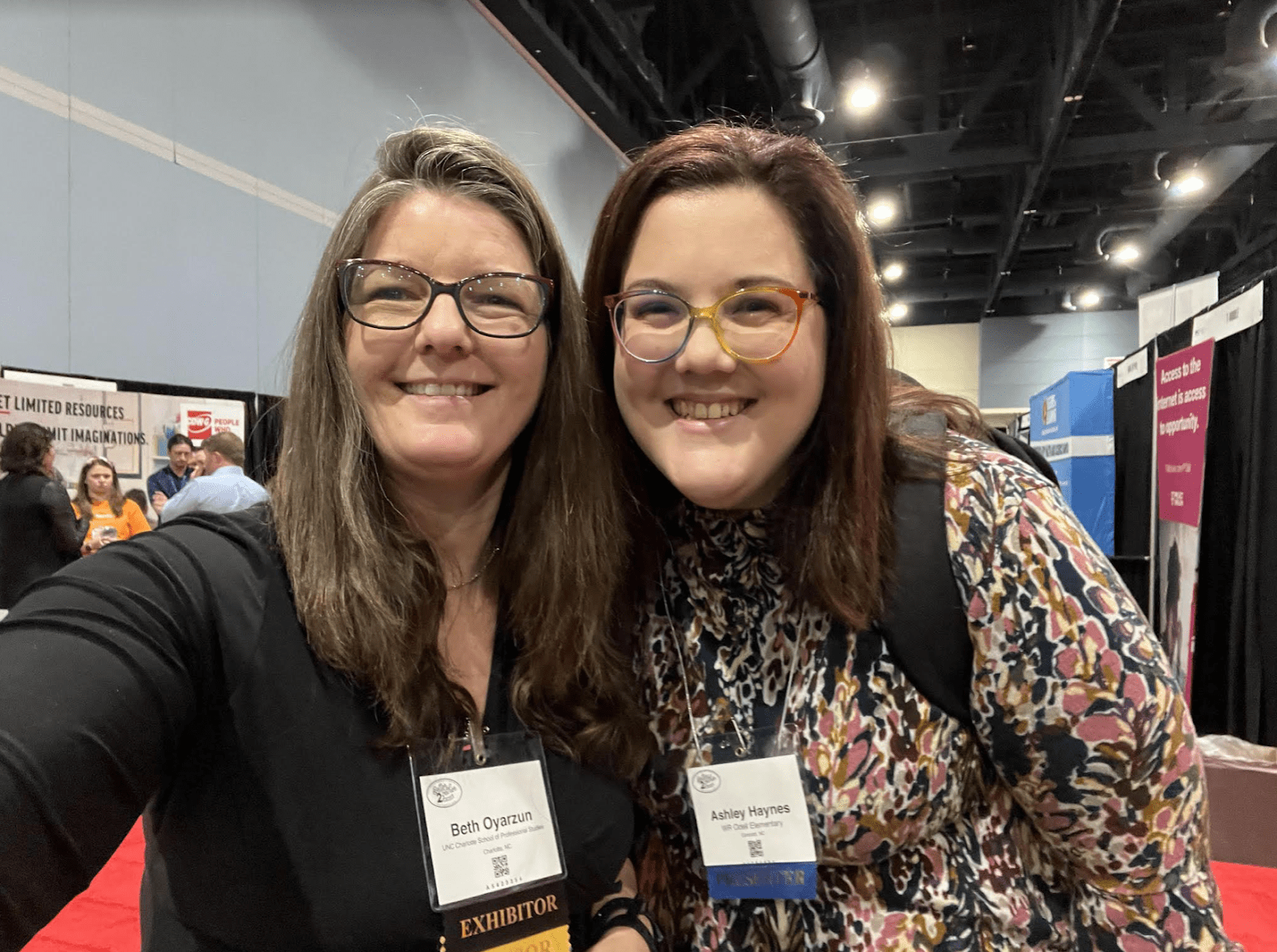
Oyarzun with current M.Ed. student Ashley Hanes, both presenting at the North Carolina Technology in Education Society (NCTIES) conference
It may also have a lot to do with the nature of the content. “As a program, we focus on the principles of quality instruction,” said Oyarzun. “The tools of technology frequently change, but if you know how to design the instruction, you can learn any tool in the future that may come along, and you have the skills to get it to do what you want it to do.”
The most recent certification this year was Teaching Support, which evaluated how the program faculty are supported by the college and the university in the research and work they do.
The versatility of the program also speaks to the growing LDT field. It is such a budding field that its terminology is not yet universal. But it is clear that those with knowledge of how to deliver high-quality instruction through content creation and digital design will be sought after in more spaces.
Students have secured a wide range of positions in all segments of society, and each of the program’s concentrations prepare students variously for corporate, military, government, or education work, or anywhere in between. To see student Spotlights, click here.
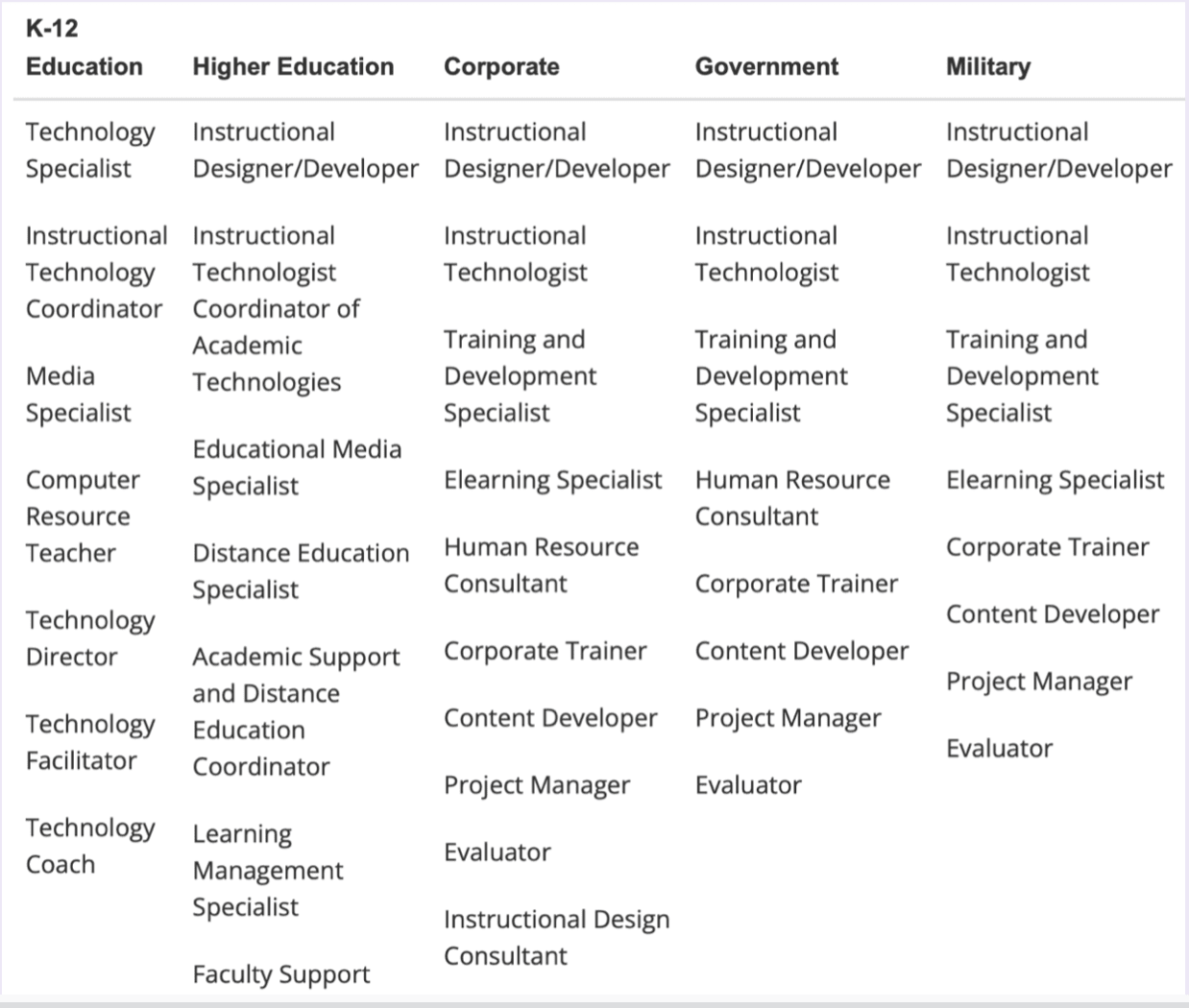
List of some of the possible jobs an LDT degree at UNC Charlotte can earn you
“It provides them with a transferable skill set that navigates how the majority of people consume information,” said Oyarzun.
“The prospects in the LDT field are a strong motivator for success,” said Oyarzun. “So our program mirrors the flexibility of those prospects, as well as encouraging students to do what excites them, and what we deliver prioritizes and promotes that. And, since we teach content creators, we need to offer the highest quality content.”